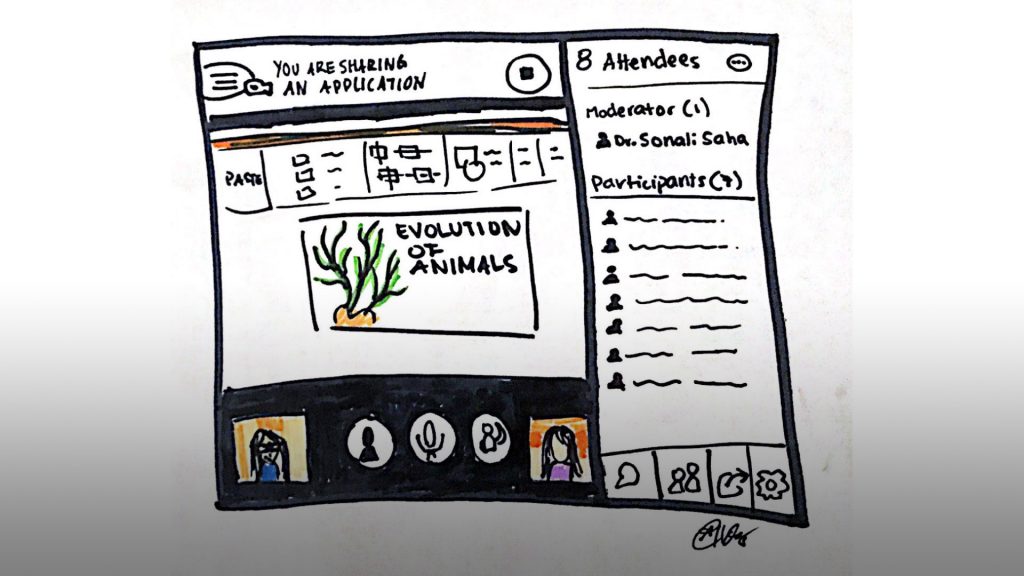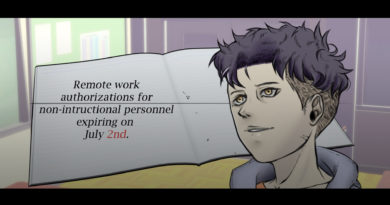Distanced Yet Collaborated
In early February, I had pitched an idea to The Reporter on a piece about a certain Greta Thunberg. As an environmental biologist, it was frustrating to see even teenagers grasping the notion that human activities are causing monumental deterioration in the climatic conditions, while our policymakers are doing next to nothing about it.
However, within weeks everything changed. Human activities almost silenced, our species took a back seat, people all over the world posted pictures of blue skies from polluted cities and dolphin sightings, and events which may have seemed hyperbolic once, were all being recorded, witnessed and shared.
With the COVID-19 induced lockdown, I was stressed out with taking five classes to completion online; a requirement that crept up on us without the slightest warning. I did not have time to be creative, just trying to solve the jigsaw puzzle through the internet maze, with a smooth ending to the semester as my prize. I heard back from The Reporter about whether I was still interested in the opinion article.
I was! But instead of writing about Greta Thunberg and her cause, I wanted to champion my students who have taken unprecedented measures and shown resolve and stoicism amidst conditions which are terrifying: economically and mentally.
The responsibility of taking classes to a satisfactory end where students have adequately learned the material and have tested for it seemed like a giant task when the shutdown was announced.
However, in the process of achieving this, it hit hard that face to face learning in a physical classroom is irreplaceable, and it is my students who made me realize this, and who have taught me much more. That is what I want to share.
Firstly, I learned that several of my students do not have a computer or a laptop, which changed when they received a laptop from the College. But everyone has a phone and some students joined my Collaborate sessions using their phones because the audio on their personal laptops did not work or was configured incorrectly, or even more dire—they did not have internet connection at home.
Thus, as many students accessed study material on phones, they’d get disconnected and go in and out of a session; instead of learning, securing uninterrupted internet connection had become the top of their worries.
While I video recorded all my sessions and posted voiced over presentations for them, uninterrupted internet service, which we take for granted in this country, was not so granted for many of my students. Moreover, it is incredibly hard if not impossible to complete a test, or view scientific images and diagrams, on a phone.
Tens of my students could not get connected straight away but did not want to drop the class because graduation is so very near. They could almost touch it, but alas it seemed to be slipping away.
“Professor wait! I asked my boss for permission to use the computer at work after hours!”
“I am buying a new router, I will be ready then.”
“I was going to a public library but that is closed too!”
“I have COVID-like symptoms, and I am also suffering from depression. Could you please accept late assignments?”
“I am an essential service provider and cannot attend classes during the day at all.”
“Darn! The physical classroom is an important escape for me. I have so much going at home, and college allows me to take a break from that.”
“Professor, I miss the classes so much and learning, it is so hard to concentrate from home.”
Some students attended class regularly in the beginning, but became rarer with time. My heart sinks when I hear and try to perceive all of this.
With COVID-19 inducted in our day-to-day dictionary, I assure my students that learning is the primary goal, and rest will follow, as long as we communicate whenever possible. My email is always open, and the phone is also an option; and they know it!
While I am the professor, my students have also taught me a real life lesson from this whole process: to persevere against all odds.




